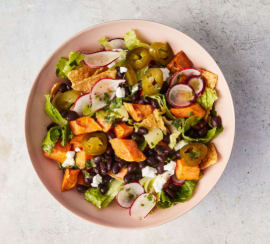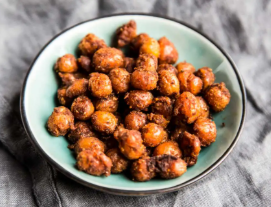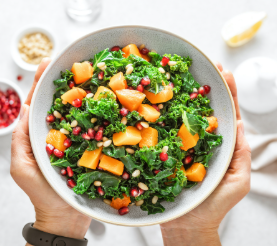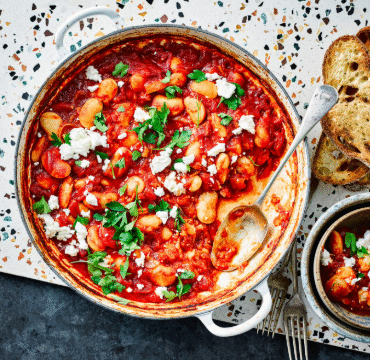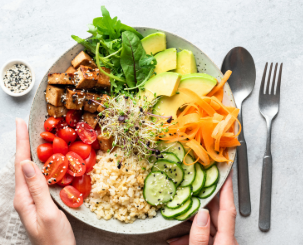Eating well often begins with preparation. For many people, busy schedules make it easy to skip balanced meals or reach for something quick but less nutritious. That’s where meal prep comes in. It’s not just about saving time; it’s about setting yourself up for success. With a bit of planning, you can make healthy eating effortless, enjoyable, and sustainable throughout the week.
The beauty of meal prep lies in its flexibility. Whether you cook for one or a whole family, the concept remains the same—plan your meals ahead, prepare ingredients or full dishes in advance, and make healthy eating as convenient as possible. This approach helps reduce stress, minimizes food waste, and saves money while ensuring that your body gets the nutrients it needs daily.
To get started, think about what your week looks like. Are your mornings usually rushed? Do you find yourself skipping lunch or ordering takeout at work? Knowing your routine helps you design a meal plan that fits your lifestyle. You don’t need to prepare every meal in advance; sometimes, prepping just one or two meals a day can make a big difference.
Breakfast is often the easiest place to start. A nutritious morning meal sets the tone for the day, and there are countless make-ahead options that are both delicious and simple. Overnight oats, for example, can be made by soaking rolled oats in milk or yogurt and leaving them in the refrigerator overnight. Add your favorite fruits, nuts, or seeds for extra flavor and nutrition. Smoothie packs are another great idea. You can portion out fruits, vegetables, and protein sources like yogurt or nut butter in freezer bags. In the morning, simply blend with your preferred liquid for a quick and energizing breakfast.
When it comes to lunch, the key is balance. Prepping lunches in advance helps you avoid unhealthy choices during the workday. A good strategy is to cook a few versatile ingredients that can be mixed and matched throughout the week. Grains such as quinoa, brown rice, or farro can serve as the foundation for many meals. Combine them with roasted vegetables, lean proteins like chicken or tofu, and a flavorful dressing or sauce. This way, you can create different combinations without getting bored. For example, one day you might enjoy a Mediterranean-inspired bowl with chickpeas, cucumbers, and feta, while another day you could opt for a spicy stir-fry with a soy-based sauce.
Dinners can also be simplified through meal prep. Consider cooking larger portions of your favorite dishes and storing individual servings for later. Soups, stews, and casseroles tend to reheat well and often taste even better the next day. Sheet pan meals are another time-saving option. By roasting a mix of protein, vegetables, and seasonings on a single pan, you can create a complete dinner with minimal cleanup. Marinating ingredients ahead of time adds flavor and helps keep them tender when cooked.
Snacks deserve attention, too. Instead of reaching for processed items, prepare wholesome options ahead of time. Sliced vegetables with hummus, fruit with yogurt, or small portions of nuts can keep you satisfied between meals. Having these ready to grab makes it much easier to stay on track.
One of the biggest advantages of meal prep is portion control. When you prepare meals yourself, you decide what goes into them and how much you eat. This not only supports healthy weight management but also ensures you’re fueling your body with the right balance of nutrients. It’s a mindful way of eating that encourages awareness of ingredients and portion sizes.
To make the process smoother, set aside specific time for meal prep each week. Many people find that spending a couple of hours on a Sunday helps them feel organized and ready for the days ahead. Start by creating a meal plan and grocery list. Choose recipes that use overlapping ingredients to save time and reduce waste. For example, if you buy a large batch of spinach, you can use it in salads, omelets, and smoothies.
Once you’ve gathered your ingredients, focus on efficiency. Cook grains, proteins, and vegetables at the same time if possible. Use your oven, stovetop, and even a slow cooker or air fryer to multitask. After cooking, allow food to cool before portioning it into containers. Glass containers are ideal because they are durable, reusable, and easy to reheat. Label each one with the meal name and date to keep everything organized.
Meal prep doesn’t have to be repetitive or dull. Variety keeps things exciting and prevents you from feeling restricted. Experiment with different herbs, spices, and sauces to enhance flavors. You can also rotate your meals weekly, switching between cuisines such as Mediterranean, Asian-inspired, or Latin American dishes. This not only broadens your palate but also helps ensure a diverse intake of nutrients.
Storing and reheating meals correctly is another essential step. Most cooked dishes last three to four days in the refrigerator, while some items can be frozen for longer storage. Soups, stews, and grains generally freeze well. When reheating, ensure the food reaches the proper temperature for safety and freshness. If you plan to freeze meals, use airtight containers and label them clearly with contents and dates.
Meal prep can also be a family activity. Involving children or partners in the process makes it more enjoyable and teaches valuable cooking and planning skills. Everyone can take part in choosing recipes, chopping ingredients, or portioning meals. Sharing the responsibility also builds healthy habits that can last a lifetime.
If you’re new to meal prepping, start small. Prepare just one meal type—perhaps lunches for three days—and build from there as you find what works best for your schedule and preferences. Over time, you’ll develop a rhythm that feels natural and rewarding.
The benefits go beyond physical health. Knowing your meals are ready reduces daily stress and decision fatigue. It also helps you stay consistent with your goals, whether you’re aiming to eat more vegetables, reduce processed foods, or simply save money. With each week of preparation, you’ll become more confident and creative in the kitchen.
In the end, simple meal prep is about setting yourself up for success through small, manageable steps. It’s not about perfection but consistency. With thoughtful planning and a bit of effort, you can enjoy nourishing, home-cooked meals every day, even when life gets busy. Embracing meal prep makes healthy eating less of a challenge and more of a lifestyle—a habit that supports your well-being and gives you the freedom to enjoy food in a balanced, stress-free way.

